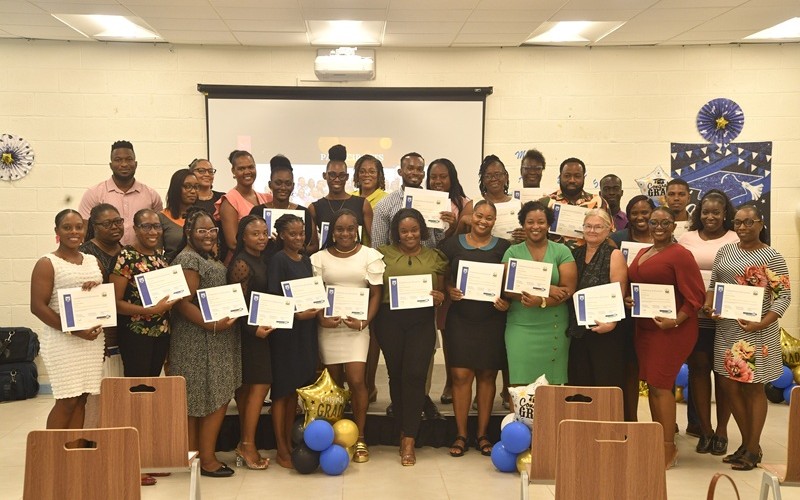
With mathematics performance across the Caribbean under increasing scrutiny, particularly at the CXC level, an urgent revolution has been taking place inside classrooms, under the guidance of a collaborative initiative designed to transform how mathematics is taught and understood. The Advancing Caribbean Teachers (ACT) in Mathematics Education project, led by the Commonwealth of Learning (COL) in partnership with the Ministries of Education in St. Kitts and Nevis, Saint Lucia, and St. Vincent and the Grenadines, has concluded with promising signs of change.
More than 80 educators, including in-service primary teachers, curriculum officers, mathematics coaches, and a few student teachers, comprised the diverse cohort who received professional development certificates of achievement in June 2025. Their participation reflected the project’s goal: improving CSEC results in mathematics cannot begin at the examination stage. It must start with foundational reform, strengthening teacher knowledge, improving classroom practice, and rethinking how young learners experience and engage with mathematics from the earliest years of schooling to the secondary level.
The ACT project was built around a blended model of professional development that included in-person workshops, self-paced engagement with OER on a dedicated, contextually designed learning management platform, and online sessions within Communities of Practice across the three countries. The timing of the online sessions was intentional, spaced a month apart to allow teachers the flexibility to apply new concepts in their classrooms, reflect on the experience, and return ready to share emerging insights. This reflexive approach became a key driver of confidence-building among participants and allowed for the continuous refinement of their instructional techniques, a layered and inclusive intervention rooted in the local context and designed to support sustainable peer-led training.
Dr Lois George, Senior Lecturer at The University of the West Indies, guided participants through the Concrete Pictorial Abstract (CPA) model, gender-responsive strategies, and practical tools for integrating technology into mathematics instruction. These approaches were incorporated to offer pedagogical strategies that make learning meaningful and accessible to all students, not just to those who naturally “get it.”
Teachers responded with enthusiasm and honesty. One participant shared, “This is the first time I’ve felt like I’m not just attending a workshop but becoming part of a movement. The CPA model helped me break down concepts that I struggled to explain. And the space to try, reflect, and try again made all the difference.”
Even in its pilot form, the ACT project shows what is possible. When professional development is well-designed, grounded in theory, and tailored to the realities of small states, the results speak for themselves. Stakeholders, including curriculum specialists and school principals, have noted that for the ACT model to deliver long-term results, it must continue to be aligned with national priorities and address the unique realities of small island developing states.
As Dr Schontal Moore, Adviser: VUSSC at COL, contemplates the next cohort, she affirms that, “ACT isn’t just about teaching maths. It is about restoring agency to the teacher, bringing research to life in the classroom, and building a foundation for equity and excellence to fuel STEM learning. When COL and education ministries support teachers with structure and give them room to grow, they transform not only their students and classrooms, but also their schools and their countries.”


